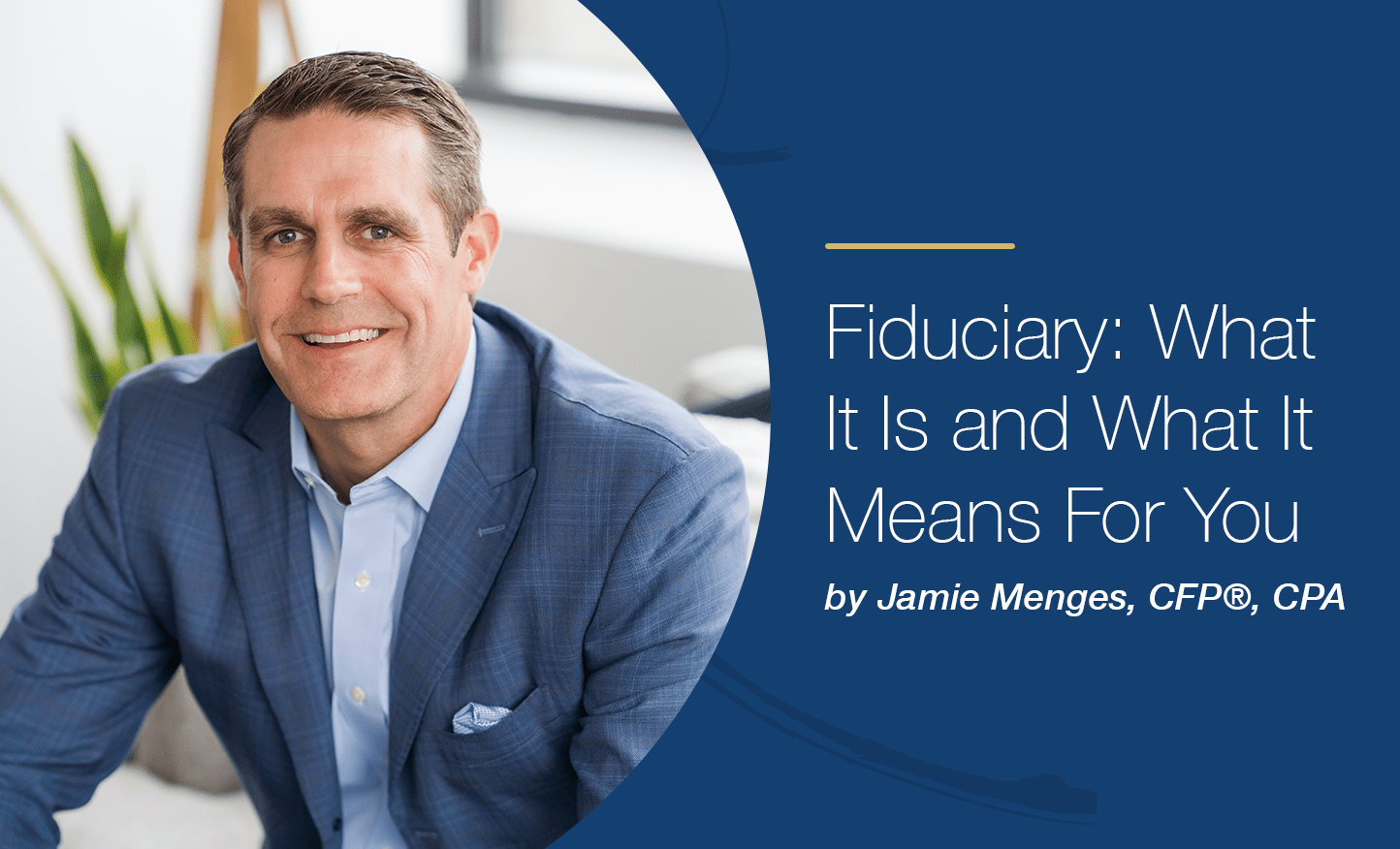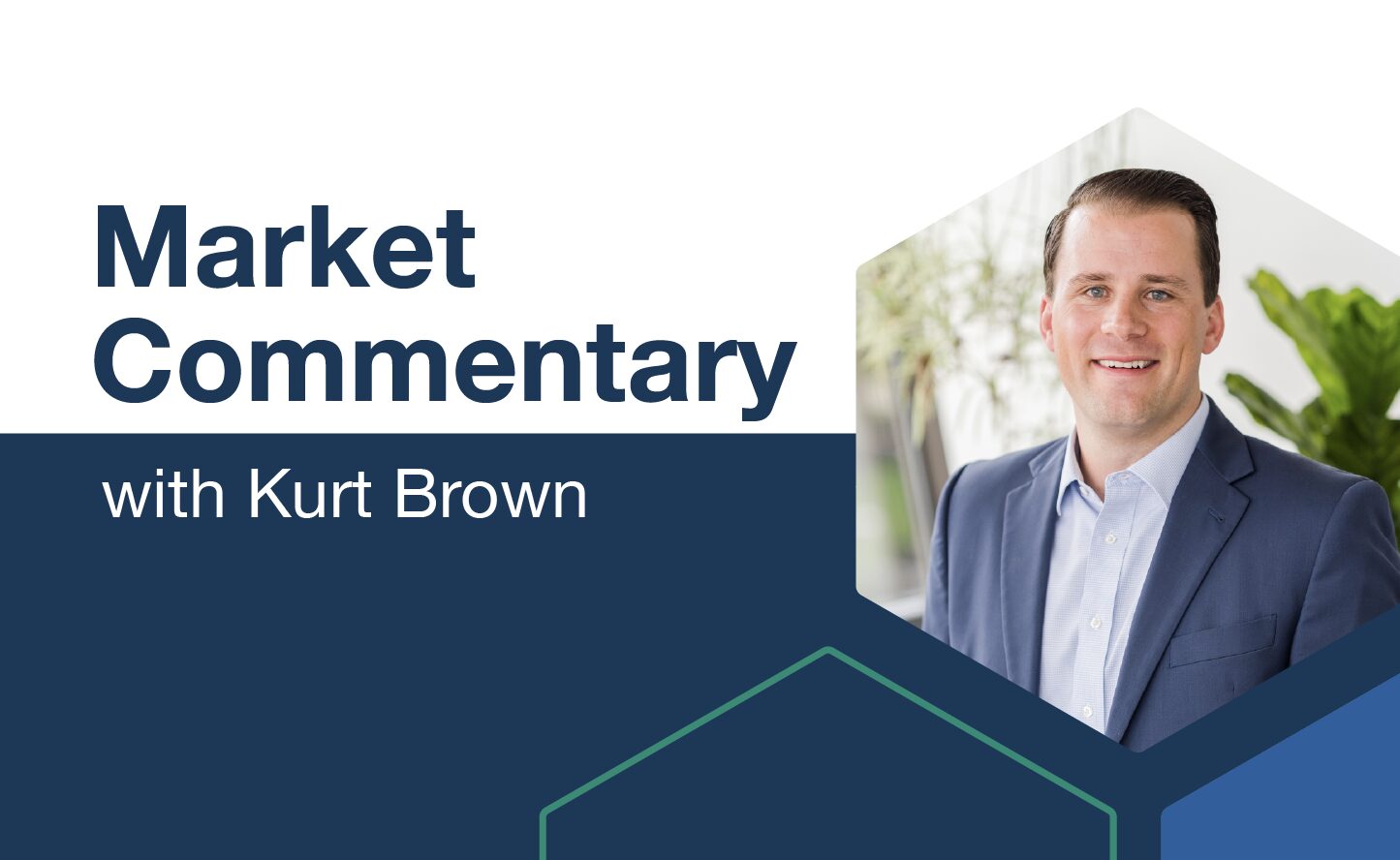Fiduciary – it’s a term everyone is using these days. But what is it? What does it mean?
Prospective clients say they want a fiduciary advisor, but oftentimes do not fully understand what it means. And about the word “advisors”, we’re throwing the term around every chance we get, almost as frequently as we talk in acronyms. “As a CFP® at an RIA, I would recommend you make a QCD with your RMD, so we can lower your taxes to avoid AMT.” See how easy that was for me? We’re relentless when it comes to this. However, this topic of fiduciary and fiduciary responsibility deserves an explanation.
Let’s start with the dictionary definition of the term “fiduciary”: involving trust, especially with regard to the relationship between a trustee and a beneficiary. That’s simple, it’s a relationship centered on trust between two interested parties.
SEC Definition of Fiduciary Standard
Now let’s take that a step further to see how the SEC creates a “Fiduciary Standard”: As fiduciaries, investment advisers are required to act in the best interest of their clients and not place their own interests ahead of their clients. By the way (and not BTW), the SEC stands for Securities and Exchange Commission, one of the chief regulatory bodies that oversees the advisory industry. I promise I’m trying to cut back on acronyms.
Looking at both of those definitions, the SEC tries to shine a light on “acting in the best interest of a client and not placing their own interests before the clients.” In doing so, advisors who are fee-only generally put their clients’ interests first, thus carry a fiduciary responsibility since there are no commissions in that type of arrangement. However, if we examine this more closely, we can see a loophole.
There are advisors who are dually registered, meaning they act in the capacity of a Registered Investment Advisor [RIA], but are also registered with a broker/dealer. This permits those who are dually registered to sell insurance and investment products. Now we have a conundrum. On the one hand (RIA), they can act in a fiduciary capacity as defined by the SEC, while on the other hand (broker/dealer), they can sell you a product and earn a commission. That’s an obvious conflict of interest.
Here are 3 steps to help you navigate this murky landscape.
- Ask tough questions. Asking about compensation is a great start. Are advisors only paid in the fees outlined in their client agreement, or do they receive any other form of compensation? Do they have the ability to receive commissions in any fashion? It’s my advice that you seek an advisor who can only receive advisory fees for their work. Do they use the same products in their personal financial plan they are recommending to you? Co-investment is usually a good sign!
- Put it in writing. Will they put it in writing that they will always act in your best interests, as a fiduciary? Will they agree that if a product needs to be purchased, they will refer you to another professional to purchase it, verifying they will receive zero financial gain from such a referral? This can help ensure the advice you receive is the best they can give, because it’s the only thing they’re compensated for.
- Don’t allow the advisor fee to be tied to your prior success. Most advisors charge their clients based upon the amount of assets they manage. You agree to work with an advisor charging a fee on assets under management. It comes out to 1% on all current dollars, future contributions, and all future growth! The advisor tells you to save – you do it – and they get a raise. What?!?!
That’s like going to a car dealership and the price of the car is based upon your income. And then putting gas in the car, and paying a 1% fee back to the dealership! Wouldn’t it make more sense for the advisor fee to be based upon the work they do for you? And shouldn’t that fee be fixed, so if the question arises whether to pay off debt, or invest in rental properties, the advisor fee is not affected by the decisions you make?
Why does this matter?
At PDS, we embrace the true fiduciary responsibility we have to our clients. Our focus is on creating tax-efficient solutions that enhance our clients’ wealth, not our own. By charging our clients a flat, fixed dollar fee, we avoid the inherent conflicts of asset-based pricing models, which is the industry norm. It has been our experience that the compound effect of this savings over time can be substantial.
Please contact us and find out if this makes sense for you.
It’s your life, let’s plan for it together
Authored by PDS Planning Principal Jamie Menges, CFP®, CPA
Please remember that past performance may not be indicative of future results. Different types of investments involve varying degrees of risk, and there can be no assurance that any specific investment, strategy, or product or any non-investment related content, made reference to directly or indirectly in this newsletter, will be suitable for your individual situation, or prove successful. This material is distributed by PDS Planning, Inc. and is for information purposes only. Although information has been obtained from and is based upon sources PDS Planning believes to be reliable, we do not guarantee its accuracy. It is provided with the understanding that no fiduciary relationship exists because of this report. Opinions expressed in this report are not necessarily the opinions of PDS Planning and are subject to change without notice. PDS Planning assumes no liability for the interpretation or use of this report. Consultation with a qualified investment advisor is recommended prior to executing any investment strategy. No portion of this publication should be construed as legal or accounting advice. If you are a client of PDS Planning, please remember to contact PDS Planning, Inc., in writing, if there are any changes in your personal/financial situation or investment objectives. All rights reserved.




